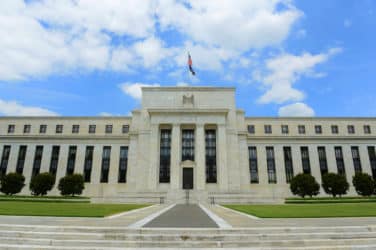
Market issues come and go but new regs will benefit asset managers long-term, buy-sider says.
 Understanding Europe’s financial and economic outlook may be the most urgent issue today for asset managers, said Howard Abner, chairman of Abner, Herrman & Brock, but the recent stream of new regulations will have a longer lasting impact, and a positive one for the traditional buy side.
Understanding Europe’s financial and economic outlook may be the most urgent issue today for asset managers, said Howard Abner, chairman of Abner, Herrman & Brock, but the recent stream of new regulations will have a longer lasting impact, and a positive one for the traditional buy side.
Abner noted it’s every investment manager’s job to forecast the U.S. and global economic and financial outlooks–with an emphasis on Europe today–and then structure portfolios accordingly. More cash and favoring fixed-income reduces volatility, as does emphasizing defensive over opportunistic securities, such as reducing the equity concentration of economically sensitive, cyclical companies in portfolios.
“On the fixed-income side, aim to stagger maturities for companies whose bonds you determine to be mispriced,” said Abner, who has worked in the investment-management business for more than 45 years.
Crises such as the one in Europe eventually pass. The steady stream of new rules affecting investment managers, stemming from recent events such as the financial crisis and the Bernie Madoff fraud, will have a much more profound and longer lasting impact, Abner said.
“It seems like each day the government adds new rules. It’s something asset managers must be attuned to in order to be compliant, and it requires more time, effort and money to ensure that,” Abner said.
Traditional asset managers should have the infrastructure in place to handle the additional regulatory burden, and in many ways they would welcome it, Abner said. Institutional investors have shifted an increasing percentage of their funds into unregistered and largely unregulated investment vehicles such as hedge funds, which in turn have provided those investors with far less transparency about their strategies and financial health.
It’s no surprise, noted Abner, that the numerous instances of insider trading in recent years involved hedge funds. Nor is it surprising that the outsized returns hedge funds advertise also carry outsized risks. Paulson & Co., for example, enriched its limited partners several times over by using credit default swaps to bet on the housing markets downturn, but as of late November its largest funds were experiencing double-digit losses.
“There’s a great deal of new regulation impacting asset managers that concerns performance, how to calculate and report it, and how to value investments,” said Abner, adding that the increased transparency will enable institutional investors to better judge an investment’s return versus its risk. “We’re in support of detailed regulation and more investment-management firms doing business on the same playing field.”






